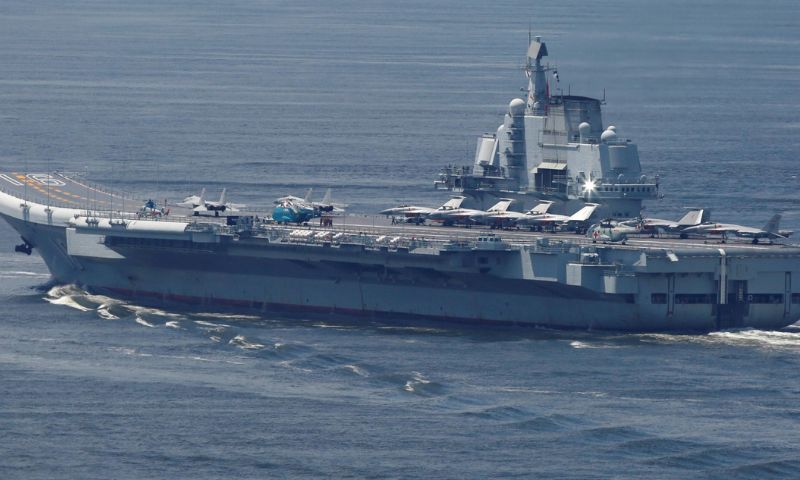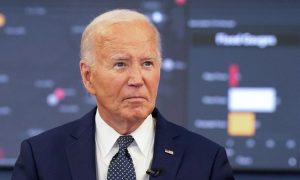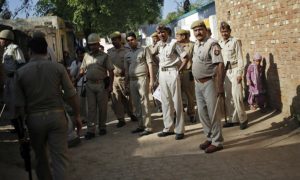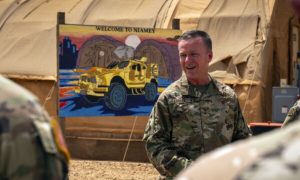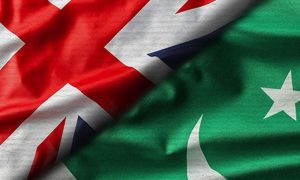TAIPEI: China has sent its second aircraft carrier Shandong into the waters off the Taiwan Strait’s southeast coast ahead of a meeting between Taiwan President Tsai Ing-wen and US House of Representatives Speaker Kevin McCarthy in Los Angeles.
In a statement, Taiwanese Defence Minister Chiu Kuo-cheng said the Chinese aircraft carrier was 200 nautical miles off Taiwan’s east coast.
“It is training, but the timing is sensitive, and what it is up to, we’re still studying,” Chiu said, adding aircraft had yet to be seen taking off from its deck.
He later told lawmakers that Taiwanese warships were monitoring the carrier at a distance of five to six nautical miles.
The Shandong, China’s first domestically-built aircraft carrier, sailed through the Bashi Channel south of Taiwan and into the Pacific on Wednesday with several other ships from the Chinese navy.
China’s state-run Global Times said the deployment showed the Shandong was “ready for far sea operations and safeguarding China’s national sovereignty and territorial integrity”. State media say the People’s Liberation Army (PLA) Eastern Theatre Command has been holding “intensive drills” on land, sea, and air over the past week. The Command covers China’s eastern coast.
The exercises come as Tsai met McCarthy in the United States state of California, in a stopover furiously condemned by Beijing, which claims self-ruled Taiwan as its own and hasn’t ruled out the use of force to take control of the island.
Tsai is returning to Taipei following Wednesday’s meeting, which she said was warm like the Californian sunshine.
McCarthy explained Tsai as “a great friend to America”. McCarthy reiterated the close relations between the United States and Taiwan at a press conference after their negotiations.
He said, “The friendship between the people of America and Taiwan is a matter of profound importance to the free globe, and it is critical to maintaining economic freedom, peace and regional stability,”
Tsai, meanwhile, thanked McCarthy and other United States legislators who joined the meeting.
“Their presence and unwavering support reassure the citizens of Taiwan that we’re not isolated and we’re not alone,” Tsai said, later adding: “We’re stronger when we are together.”
The meeting occurred as Tsai returned from a trip to Belize and Guatemala, two of Taiwan’s 13 remaining diplomatic allies.
Great power tension
The United States hasn’t had formal ties with Taiwan since 1979 but is the island’s most significant global supporter and weapons supplier.
Beijing reiterated in a statement that Taiwan was “the first red line that must not be crossed in China-United States relations”, threatening “strong and resolute measures” in reply to the McCarthy-Tsai meeting.
After his predecessor as, Nancy Pelosi, House Speaker, visited Taiwan the previous August, China staged massive military drills that included firing missiles over and around the island.
The Global Times reported experts saying the People’s Liberation Army was likely “to take countermeasures, and also including by holding large-scale and long-lasting drills around the island of Taiwan, and push forward the progress of national reunification”.
There has been no official comment from China on the presence of the Shandong in the Pacific.
China’s Defence Ministry condemned the Tsai-McCarthy meeting but didn’t threaten specific action.
“The Chinese People’s Liberation Army adheres to its duties and missions, maintains a high degree of alert at all times, resolutely defends national sovereignty and territorial integrity, and resolutely maintains peace and stability in the Taiwan Strait,” said in a statement.
The Shandong appeared as French President Emmanuel Macron and European Commission President Ursula von der Leyen arrived in Beijing for talks. The two are due to meet Chinese President Xi Jinping later on Thursday.
An official in Taiwan said Beijing might not want to step up the action while trying to show a more diplomatic face to the globe and cast itself as a potential peacemaker in Ukraine.
“So at the moment, they’re continuing to put on a more peaceful, great power image,” Ko Cheng-heng, deputy head of Taiwan’s National Security Bureau, told lawmakers in Taipei.









